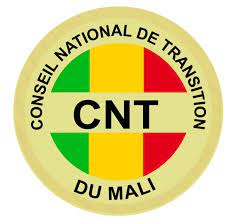- 2 mining agreements, one for exploration (9 years) and one for exploitation (12 years)
- Taxation: takes account of work carried out by the State and exemptions for the exploration phase
- The Local Development Mining Fund, financed by 0.75% of the trimester turnover of mining companies.
- The energy and water infrastructure fund, financed by 20% of the proportional royalty and 1% of the trimester turnover of mining companies.
- Abolition of exemptions for petroleum products in operation
- Creation of a commission to control and monitor mining activities
Mali’s National Transitional Council (CNT) is today, 7 August 2023, holding an extraordinary session to examine the draft Mining Code. Many innovations are proposed in this draft Code.
The project proposes 2 types of mining agreement: one for the exploration phase for a total duration of 9 years, including 2 renewals, and one for the exploitation phase for a duration of 12 years, including 2 years for the mine construction phase.
A reduction in the area covered by exploration permit renewals has been proposed to prevent mining companies from freezing perimeters.
In terms of taxation, former work carried out by the State and exemptions granted during the exploration phase are now taken into account.
Mali’s draft Mining Code has created many funds. These include the Local Development Mining Fund, which will be financed by 0.75% of the trimester turnover of mining companies. The fund for rehabilitating and securing artisanal mining sites and combating the use of prohibited chemicals will be financed by 50% of the flat-rate royalties paid by holders of artisanal mining permits and semi-mechanised mining permits. A decree will specify the source of funding for the fund to promote mining activities.
The fund to finance geological research, capacity building and training will also be financed by mining companies to the tune of 0.50% of their trimester turnover. Lastly, the energy and water infrastructure fund will have 2 sources of funding: 20% of the proportional royalty and 1% of the trimester turnover of mining companies. This rate will be increased to 2.5% after the first 5 years of operation.
The bill abolishes exemptions for petroleum products during the exploitation phase. It creates a commission to control and monitor mining activities, the organisation and operation of which will be set out in a decree.
The requirement to repatriate all foreign currency earned from the export of mineral substances has been reaffirmed.
Another important innovation is the State’s right of pre-emption in the event of the sale of mining licences. This provision will enable the State to exercise greater control over the sale and acquisition of large-scale mining permits.
The project focuses on strategic minerals such as lithium. It defines them as substances that are of vital importance to the country’s economy and/or are sources of energy. Finally, the Code provides for a closure and rehabilitation escrow account to be set up as soon as production starts, and domiciled in a local bank.
As a reminder, the project was the culmination of a long process that began with an audit of the mining sector commissioned by the Ministry of Finance. The results of the audit enabled a group of experts to propose a draft text that was adopted by the government before being sent to the CNT in plenary session on Monday 7 August 2023.
Elie KABORE
#Mines_Actu_Burkina










